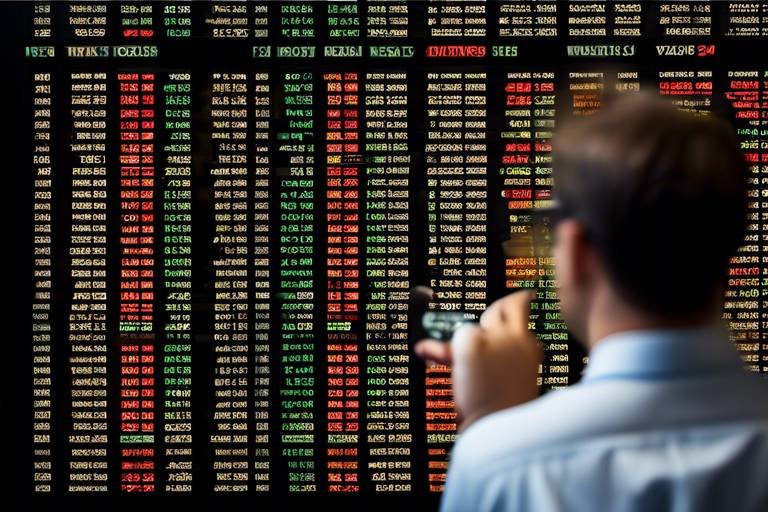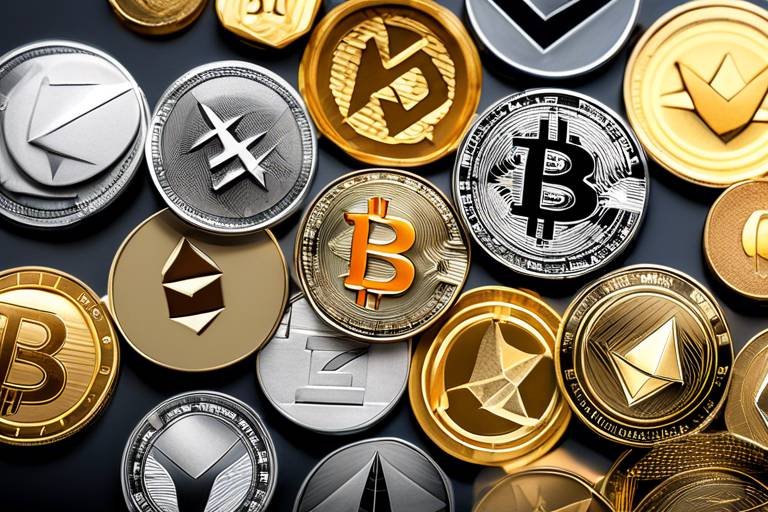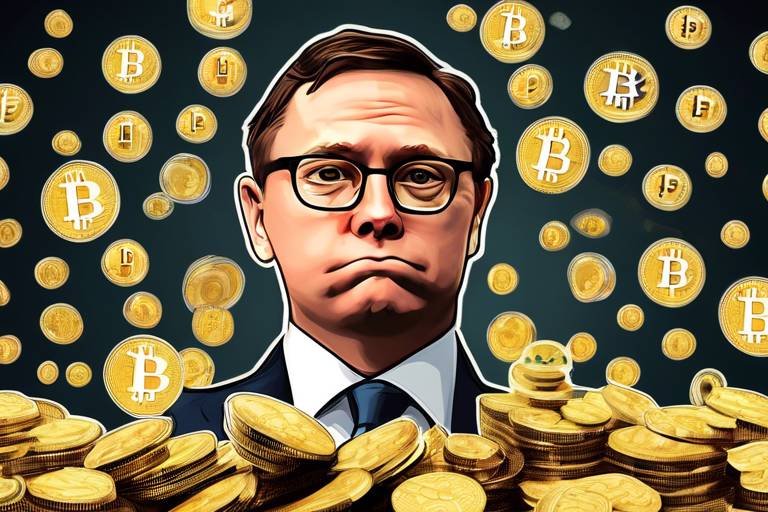How Geopolitical Tensions Shape Cryptocurrency Markets
In today's interconnected world, the influence of geopolitical tensions on financial markets cannot be overstated, and the cryptocurrency landscape is no exception. As global events unfold, they create ripples that affect investor sentiment, market dynamics, and regulatory frameworks in the digital currency space. Imagine a storm brewing on the horizon; as it approaches, the winds of uncertainty begin to sway the sails of investors, pushing them toward safer harbors. In this case, cryptocurrencies often become an alternative asset class that many turn to during times of unrest.
When we talk about geopolitical tensions, we refer to conflicts that arise between nations or regions, which can stem from political disputes, military actions, or economic sanctions. These events can lead to a spike in volatility within cryptocurrency markets, as investors frantically search for ways to protect their wealth from traditional financial systems that may be compromised. For instance, during the onset of the Russia-Ukraine conflict, many investors flocked to Bitcoin as a hedge against instability, causing its price to surge dramatically.
Furthermore, the digital nature of cryptocurrencies allows them to transcend borders, making them particularly appealing in regions facing economic sanctions or currency devaluation. For example, in countries experiencing hyperinflation, such as Venezuela, citizens have turned to cryptocurrencies as a means to preserve their purchasing power. This trend highlights the growing role of cryptocurrencies as a safe haven during geopolitical crises, leading to increased adoption and market growth.
However, the relationship between geopolitical tensions and cryptocurrency markets is not one-sided. Just as global events can drive investors toward digital assets, they can also prompt regulatory responses that reshape the landscape. Governments may react to geopolitical crises with new regulations aimed at controlling or monitoring cryptocurrency transactions, which can have profound implications for market participants. For instance, when China imposed a ban on cryptocurrency trading, the market experienced a significant downturn, showcasing how government actions can influence investor behavior and market sentiment.
In essence, the intricate dance between geopolitical tensions and cryptocurrency markets is a complex interplay of fear, opportunity, and regulation. As investors navigate these turbulent waters, they must remain vigilant, informed, and adaptable to the ever-changing landscape. The future of cryptocurrencies will likely be shaped by how effectively they can respond to the challenges posed by geopolitical events, making it an exciting space to watch.
- How do geopolitical tensions affect cryptocurrency prices? Geopolitical tensions can lead to increased volatility in cryptocurrency prices as investors seek alternative assets during uncertain times.
- What role do regulations play during geopolitical crises? Governments often implement new regulations in response to geopolitical events, which can significantly impact market dynamics and investor behavior.
- Are cryptocurrencies a safe haven during conflicts? Many investors view cryptocurrencies as a safe haven during conflicts, as they can provide protection against traditional financial system disruptions.
- How does decentralization influence cryptocurrency resilience? Decentralization allows cryptocurrencies to operate independently of traditional financial systems, offering security and autonomy during geopolitical tensions.
- What investment strategies are common during geopolitical crises? Investors may engage in panic selling or strategic buying based on market conditions, and they often weigh the risks of long-term versus short-term investments.

The Impact of Global Conflicts on Cryptocurrency
Global conflicts, whether they are military confrontations, trade wars, or diplomatic standoffs, have a profound impact on cryptocurrency markets. During such times, investors often look for safe havens to protect their assets from the volatility of traditional markets. This behavior is driven by the instinct to mitigate risk, leading to a surge in interest for cryptocurrencies—an asset class that is perceived as less susceptible to the fluctuations of conventional financial systems.
For instance, when tensions rise in regions like Eastern Europe or the Middle East, we often see a marked increase in cryptocurrency trading volumes. Investors flock to digital currencies, seeking refuge from the economic instability that accompanies geopolitical crises. This shift can be attributed to the decentralized nature of cryptocurrencies, which allows them to operate independently of government control and traditional banking systems. In essence, cryptocurrencies become a beacon of hope for those looking to preserve their wealth during turbulent times.
Moreover, historical trends have shown that specific events can lead to significant price spikes in cryptocurrencies. For example, during the onset of the COVID-19 pandemic, many investors turned to Bitcoin and other altcoins as stock markets plummeted. The fear of economic collapse propelled Bitcoin's price to new heights, showcasing how global crises can catalyze dramatic shifts in market dynamics.
To illustrate this point, consider the following table that summarizes key geopolitical events and their corresponding impacts on cryptocurrency prices:
| Geopolitical Event | Cryptocurrency Impact | Price Change (%) |
|---|---|---|
| COVID-19 Pandemic | Surge in Bitcoin and Ethereum investments | +200% |
| Russia-Ukraine Conflict | Increased interest in Bitcoin as a safe haven | +150% |
| U.S.-China Trade War | Volatility in crypto markets as investors react | -50% |
As the table indicates, each geopolitical event can lead to varying degrees of impact on cryptocurrency prices. The volatility observed during these times not only reflects investor sentiment but also highlights the growing recognition of digital currencies as a legitimate asset class.
In addition to price changes, global conflicts can also affect investor behavior in more nuanced ways. For instance, during times of uncertainty, we often see a rise in the number of new investors entering the cryptocurrency market. Many individuals, previously hesitant to invest in digital currencies, may feel compelled to explore this alternative due to the perceived security it offers against traditional financial systems. This influx can lead to increased market liquidity, which may further amplify price movements as new capital flows into the market.
However, it’s essential to recognize that not all impacts of geopolitical tensions are positive. While some investors may find solace in cryptocurrencies, others may panic sell, fearing that their investments will plummet. This dichotomy creates a complex landscape where market sentiment can shift rapidly, leading to unpredictable price swings. In essence, the cryptocurrency market becomes a reflection of the broader geopolitical climate, oscillating between optimism and fear.
In conclusion, the intricate relationship between global conflicts and cryptocurrency markets cannot be overstated. As geopolitical tensions rise, they invariably influence market dynamics, investor behavior, and the overall perception of digital currencies as a viable alternative to traditional investments. Understanding these impacts is crucial for anyone looking to navigate the sometimes-turbulent waters of cryptocurrency investing.

Regulatory Responses to Geopolitical Events
In the fast-evolving world of cryptocurrency, geopolitical events can trigger a cascade of regulatory responses that reshape the market landscape. When tensions rise, governments often feel compelled to take action, introducing regulations that can either bolster or hinder the growth of digital currencies. These regulations are not just arbitrary; they are strategic moves aimed at stabilizing economies, protecting investors, and maintaining national security. For instance, during times of conflict, authorities may impose stricter compliance measures on cryptocurrency exchanges to prevent money laundering and illicit activities.
One notable example occurred during the Russia-Ukraine conflict, where numerous countries rushed to implement new regulations concerning cryptocurrency transactions. The rationale behind these measures was to ensure that cryptocurrencies were not being used to evade sanctions or fund illegal activities. As a result, many exchanges had to adapt quickly, enhancing their Know Your Customer (KYC) processes and monitoring transactions more closely. This kind of regulatory shift can have profound implications for market participants, as it can lead to increased operational costs and potential barriers to entry for new players in the market.
Moreover, the regulatory landscape is not uniform; different countries adopt unique approaches based on their political climate and economic goals. For example, while some nations may embrace cryptocurrencies and create a favorable regulatory environment to attract investment, others may take a more cautious stance, limiting the use of digital currencies. This divergence can create a patchwork of regulations that complicates international trading and investment in cryptocurrencies.
To better understand the impact of these regulatory responses, let’s take a look at a table summarizing various countries' approaches to cryptocurrency regulation during geopolitical crises:
| Country | Regulatory Approach | Impact on Cryptocurrency Market |
|---|---|---|
| United States | Increased scrutiny and compliance requirements | Market stabilization but increased operational costs for exchanges |
| China | Strict bans on cryptocurrency trading | Significant market downturn and migration of businesses |
| Germany | Supportive regulatory framework | Attraction of investment and innovation in the crypto space |
| Russia | Ambiguous regulations; potential for future restrictions | Uncertainty leading to cautious investor behavior |
As we can see, the regulatory responses to geopolitical events are as varied as the countries themselves. The implications of these regulations extend beyond immediate market reactions; they can influence long-term investor confidence and the overall health of the cryptocurrency ecosystem. In a world where digital currencies are becoming increasingly intertwined with global finance, understanding these regulatory dynamics is crucial for anyone looking to navigate the cryptocurrency landscape effectively.
In conclusion, the relationship between geopolitical events and regulatory responses is complex and multifaceted. As tensions rise, we can expect governments to continue to adapt their regulatory frameworks, which will inevitably shape the future of cryptocurrency markets around the globe.
- What are the main reasons for regulatory changes in cryptocurrency markets?
Regulatory changes often stem from concerns about financial stability, investor protection, and the prevention of illegal activities such as money laundering and terrorism financing. - How do geopolitical events influence cryptocurrency prices?
Geopolitical events can create uncertainty, leading investors to either flee to cryptocurrencies as a safe haven or panic sell, resulting in significant price fluctuations. - Are all countries adopting strict regulations for cryptocurrencies?
No, countries have different approaches. Some are embracing cryptocurrencies with supportive regulations, while others impose strict bans or heavy restrictions.
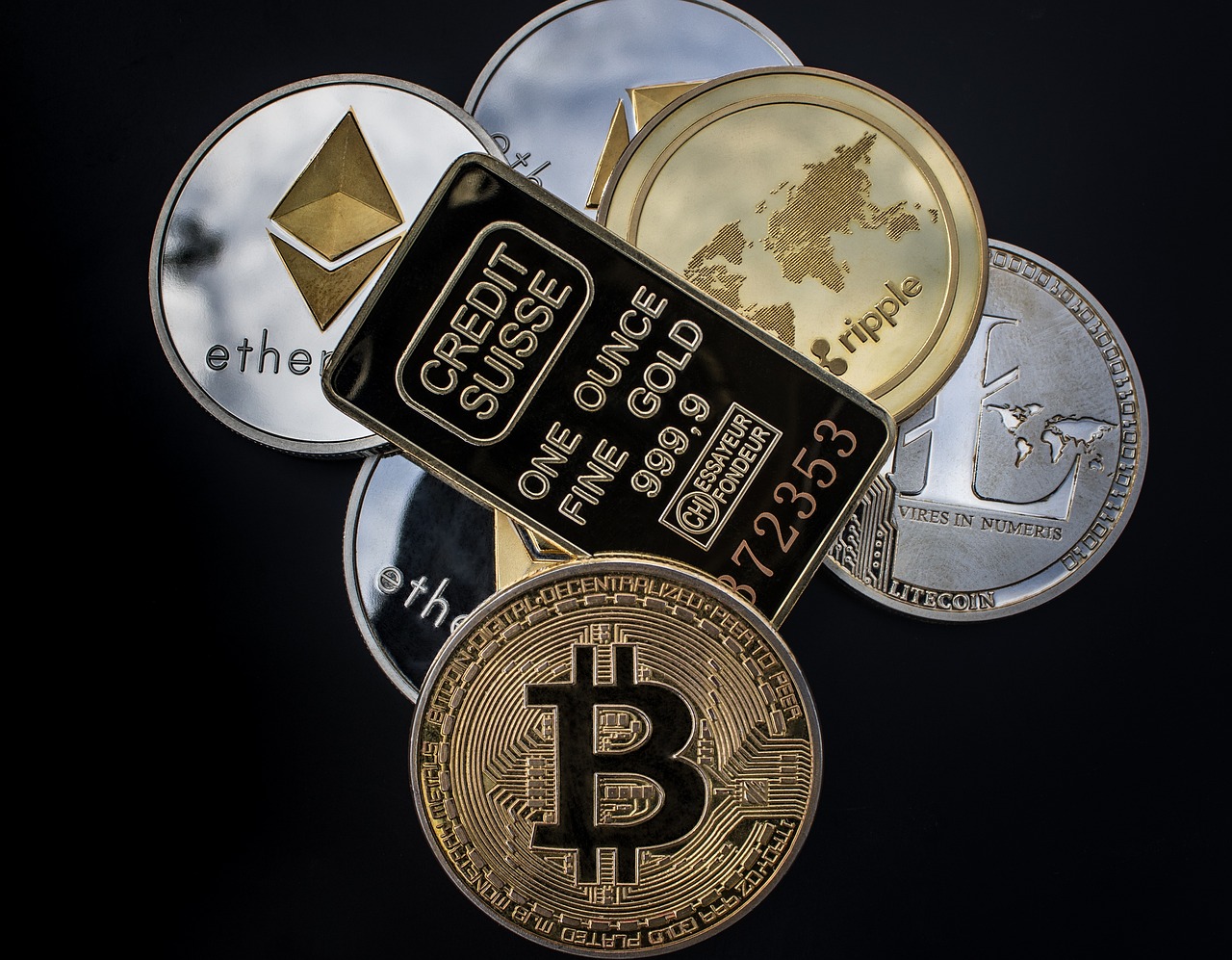
Case Studies of Regulatory Changes
When we talk about the intricate dance between geopolitical tensions and cryptocurrency markets, it’s essential to look at real-world examples that illustrate how regulatory changes can turn the tide. One striking case is the regulatory response to the 2014 Ukrainian crisis. As conflict erupted, the Ukrainian government imposed strict regulations on the use of cryptocurrencies, aiming to curb potential financing of insurgent activities. This resulted in a significant decrease in local trading volumes, as investors were left uncertain about the future of their assets. The Bitcoin price, which had been surging, saw a decline as fear gripped the market.
Another compelling example is the Chinese government's crackdown on cryptocurrency exchanges in 2017. Amid rising concerns about capital flight and financial instability, China implemented a series of regulations that led to the closure of major exchanges. The immediate effect was a sharp drop in Bitcoin's price, reflecting the market’s sensitivity to regulatory news. However, this also sparked a wave of innovation as traders sought decentralized platforms, leading to the rise of peer-to-peer trading solutions. This case highlights how regulatory changes can create both challenges and opportunities within the cryptocurrency ecosystem.
In contrast, the European Union's approach to cryptocurrency regulation has been more measured and collaborative. In 2020, the EU proposed a comprehensive regulatory framework known as the Markets in Crypto-Assets (MiCA) regulation. This aimed to provide clarity and legitimacy to the cryptocurrency market while ensuring consumer protection. Interestingly, this proactive stance has led to increased investor confidence, as market participants feel more secure knowing that there are established guidelines in place. The MiCA framework exemplifies how thoughtful regulatory changes can bolster market stability, even amid geopolitical tensions.
To further illustrate these points, let's take a look at a comparative table that summarizes the regulatory responses from different countries during geopolitical crises:
| Country | Event | Regulatory Response | Market Impact |
|---|---|---|---|
| Ukraine | 2014 Crisis | Imposed strict regulations on cryptocurrencies | Decreased trading volumes; Bitcoin price decline |
| China | 2017 Exchange Crackdown | Closed major exchanges; banned ICOs | Sharp drop in Bitcoin price; rise of P2P trading |
| European Union | 2020 MiCA Proposal | Comprehensive regulatory framework | Increased investor confidence; market stability |
These case studies underscore the importance of understanding how regulatory changes can ripple through the cryptocurrency market, affecting everything from trading volumes to investor sentiment. As we navigate the complexities of a world filled with geopolitical tensions, staying informed about these regulatory shifts is crucial for anyone involved in the cryptocurrency space.
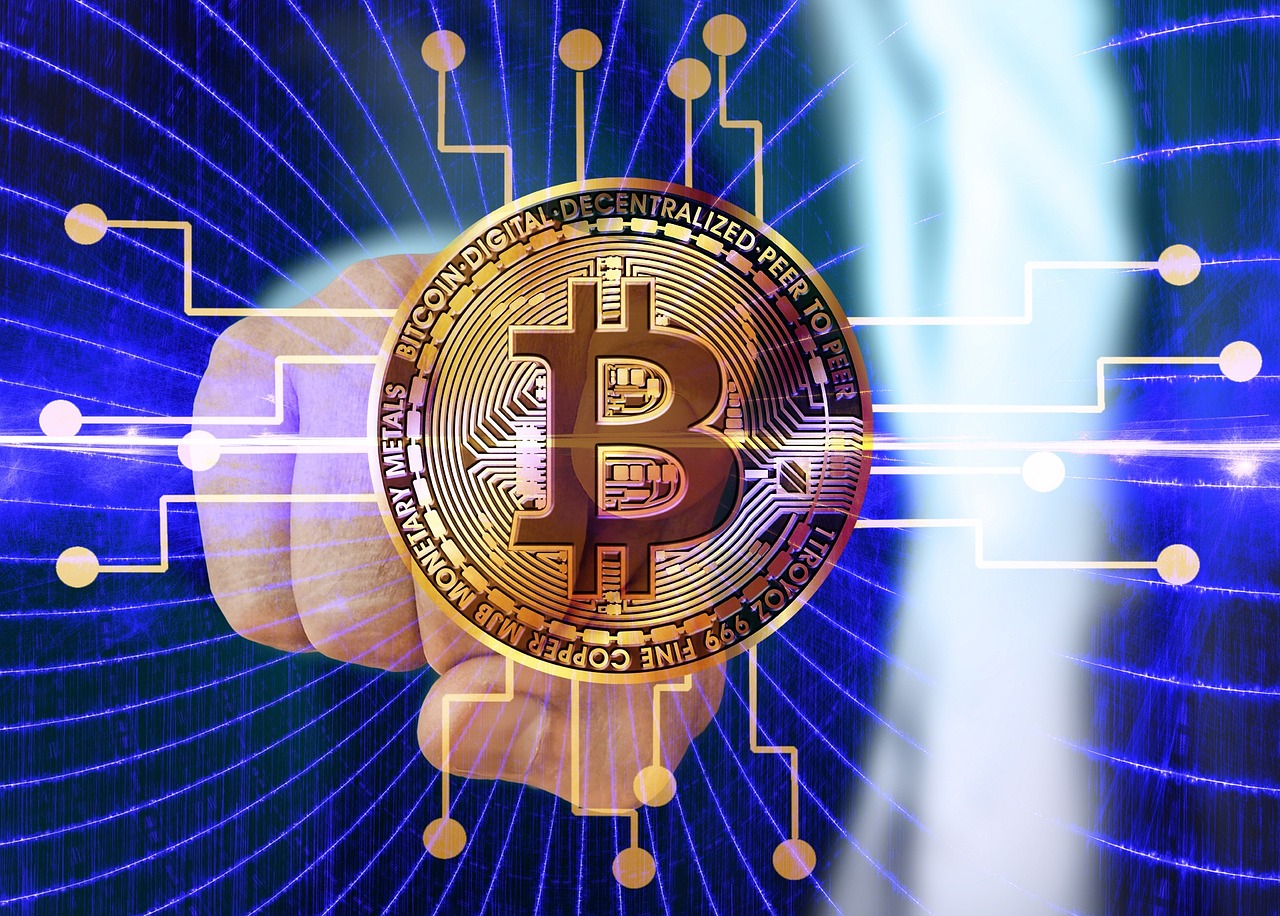
Country-Specific Regulations
When it comes to the world of cryptocurrency, play a crucial role in shaping how digital currencies are perceived and utilized. Each nation has its own unique stance on cryptocurrencies, influenced by factors such as cultural attitudes, economic conditions, and political climates. For instance, in countries like China, stringent regulations have been implemented, effectively banning cryptocurrency trading and Initial Coin Offerings (ICOs). This has led to a significant impact on the global crypto market, as many traders and miners relocated to more crypto-friendly environments.
On the flip side, nations like Switzerland and Malta have embraced cryptocurrencies, creating regulatory frameworks that encourage innovation and investment. In Switzerland, the government has established clear guidelines for ICOs and blockchain technology, positioning the country as a leading hub for cryptocurrency businesses. This regulatory clarity not only attracts investors but also fosters a sense of security among users, which is vital in a market often plagued by uncertainty.
Moreover, the United States presents a mixed bag of regulations. Different states have varying laws regarding cryptocurrency, with some like California being more lenient, while others, such as New York, have instituted the BitLicense, which imposes strict requirements on cryptocurrency businesses. This patchwork of regulations can create confusion for investors and companies alike, leading to challenges in compliance and operational consistency.
To illustrate the impact of these regulations, consider the following table that summarizes the regulatory approaches of various countries:
| Country | Regulatory Approach | Impact on Market |
|---|---|---|
| China | Strict bans on trading and ICOs | Significant market volatility and migration of miners |
| Switzerland | Clear guidelines and supportive environment | Attraction of businesses and innovation |
| United States | Varied regulations by state | Confusion and compliance challenges for businesses |
| Malta | Proactive regulatory framework | Growth in crypto startups and investments |
As we can see, the regulatory landscape is not only diverse but also dynamic. Countries are continually adapting their regulations in response to the evolving nature of cryptocurrency and its implications for their economies. This adaptability is crucial, as it can either foster growth and innovation or stifle it altogether. Investors must stay informed about these regulations to navigate the crypto market effectively and make sound investment decisions.
In conclusion, understanding the nuances of country-specific regulations is essential for anyone involved in the cryptocurrency space. Whether you're an investor, trader, or developer, being aware of how different nations regulate digital currencies can give you a significant advantage in this rapidly changing environment.
- What are country-specific regulations in cryptocurrency?
These are laws and guidelines established by individual countries that govern the use, trading, and development of cryptocurrencies within their borders.
- How do regulations impact the cryptocurrency market?
Regulations can either encourage or hinder market growth, affecting investor confidence, business operations, and overall market stability.
- Which countries have the most favorable regulations for cryptocurrencies?
Countries like Switzerland and Malta have created supportive regulatory environments, attracting businesses and investors.
- How can I stay updated on cryptocurrency regulations?
Follow reputable news sources, subscribe to industry newsletters, and engage with cryptocurrency communities online to stay informed about regulatory changes.

International Cooperation and Regulation
In today's interconnected world, the rise of cryptocurrencies has prompted a significant shift in how countries approach regulation, particularly in the context of geopolitical tensions. As nations grapple with the implications of digital currencies, the need for international cooperation becomes increasingly evident. The complexities of cryptocurrency markets, combined with the challenges posed by global conflicts, necessitate a collaborative approach to regulation that transcends national borders.
When geopolitical tensions escalate, countries often find themselves facing similar challenges regarding cryptocurrency. Issues such as money laundering, tax evasion, and the potential for cryptocurrencies to undermine traditional financial systems are common concerns. In response, nations have begun to engage in dialogues aimed at establishing a unified regulatory framework. This cooperation can take various forms, including:
- Joint Task Forces: Countries may form task forces to address specific issues related to cryptocurrency, pooling resources and expertise to tackle challenges more effectively.
- Information Sharing: Nations can benefit from sharing intelligence on cryptocurrency transactions, enhancing their ability to monitor and regulate cross-border activities.
- Standardization of Regulations: By working together, countries can strive to create standardized regulations that reduce the regulatory arbitrage opportunities that often arise when different jurisdictions have varying rules.
One notable example of international cooperation is the work being done by organizations like the Financial Action Task Force (FATF). The FATF has developed guidelines for countries to follow in their regulatory approaches to cryptocurrencies, emphasizing the need for a cohesive strategy to combat illicit activities. As nations adopt these guidelines, we can expect to see a more harmonized regulatory landscape that not only addresses the risks associated with cryptocurrencies but also fosters innovation.
However, achieving international cooperation is not without its challenges. Different countries have varying levels of acceptance and understanding of cryptocurrencies, leading to discrepancies in regulatory attitudes. For instance, while some nations embrace cryptocurrencies as a legitimate financial instrument, others remain skeptical, viewing them as a threat to their economic stability. This divergence can hinder the development of a cohesive regulatory framework.
Moreover, the pace of technological advancements in the cryptocurrency space often outstrips the ability of regulators to respond effectively. As new innovations emerge, such as decentralized finance (DeFi) and non-fungible tokens (NFTs), the regulatory landscape must adapt. This adaptability requires ongoing dialogue and collaboration among nations to ensure that regulations are not only effective but also conducive to growth.
In conclusion, international cooperation in cryptocurrency regulation is essential for navigating the complexities of a rapidly evolving financial landscape, especially during times of geopolitical tension. By working together, countries can create a regulatory environment that addresses risks while promoting innovation, ultimately benefiting both investors and the global economy.
- What is the role of international organizations in cryptocurrency regulation? International organizations like the FATF provide guidelines and frameworks to help countries establish effective regulatory measures for cryptocurrencies.
- Why is international cooperation important in cryptocurrency regulation? Given the borderless nature of cryptocurrencies, international cooperation helps prevent regulatory arbitrage and ensures that risks associated with digital currencies are managed effectively across jurisdictions.
- What challenges do countries face in achieving regulatory cooperation? Differences in regulatory attitudes, technological advancements, and varying levels of understanding of cryptocurrencies can create obstacles to effective international cooperation.

Market Reactions to Geopolitical News
In today's fast-paced world, the cryptocurrency market is like a rollercoaster, especially when it comes to geopolitical news. When major events unfold—be it a war, a political coup, or even economic sanctions—the market reacts almost instantaneously. It's as if the digital currency realm is a living organism, responding to the pulse of global happenings. Investors, much like bees sensing a change in their environment, buzz with activity, and their reactions can lead to significant price fluctuations.
For instance, when tensions rise between countries, investors often flock to cryptocurrencies as a safe haven. This behavior can be attributed to several key factors:
- Perceived Safety: Cryptocurrencies are decentralized and can be accessed from anywhere, making them attractive during times of uncertainty.
- Market Sentiment: News of geopolitical unrest often creates a wave of fear, leading to panic selling in traditional markets, while cryptocurrencies may see a surge in interest.
- Speculative Trading: Traders often capitalize on the volatility that geopolitical events create, leading to rapid price changes.
Take, for example, the recent tensions in Eastern Europe. When news broke of increased military activity, Bitcoin's price saw a sharp increase as investors sought refuge from traditional assets that were losing value. This pattern isn't unique; it has been observed multiple times throughout history. In fact, a study conducted during the height of the Syrian conflict revealed that Bitcoin trading volumes spiked as individuals sought alternatives to their national currencies, which were rapidly depreciating.
Furthermore, the cryptocurrency market is highly interconnected with global news. A single tweet or announcement can send ripples through the market. For example, when a prominent leader makes a statement regarding sanctions or trade agreements, the immediate reactions can be dramatic. Traders often rely on news aggregators and social media platforms to gauge market sentiment, leading to a cycle of rapid buying and selling based on the latest headlines.
To illustrate this phenomenon, consider the following table that summarizes the correlation between significant geopolitical events and cryptocurrency price movements:
| Geopolitical Event | Cryptocurrency Affected | Price Change (%) | Time Frame |
|---|---|---|---|
| Military Conflict in Country X | Bitcoin | +15% | 1 Week |
| Trade Sanctions Imposed | Ethereum | +10% | 3 Days |
| Political Coup in Country Y | Ripple | -5% | 2 Days |
As we can see from the table, the reactions can vary widely depending on the nature of the news and the specific cryptocurrency in question. While some cryptocurrencies may surge in value, others might experience declines, highlighting the unpredictable nature of the market. This volatility is a double-edged sword; while it presents opportunities for profit, it also poses significant risks for investors.
In conclusion, the cryptocurrency market's sensitivity to geopolitical news is a fascinating aspect of its dynamics. Investors must remain vigilant, keeping an ear to the ground for any developments that may impact their assets. As history has shown, the interplay between global events and market reactions can create both challenges and opportunities. So, whether you’re a seasoned trader or a curious newcomer, understanding these market reactions can be the key to navigating this thrilling landscape.
- How do geopolitical events affect cryptocurrency prices?
Geopolitical events can create uncertainty, leading investors to seek cryptocurrencies as alternative assets, which can drive prices up or down based on market sentiment. - Are all cryptocurrencies equally affected by geopolitical news?
No, different cryptocurrencies react differently to geopolitical news. Factors such as market capitalization, use cases, and investor sentiment play a significant role. - What should investors watch for during geopolitical tensions?
Investors should monitor news headlines, market trends, and trading volumes to gauge potential impacts on cryptocurrency prices.
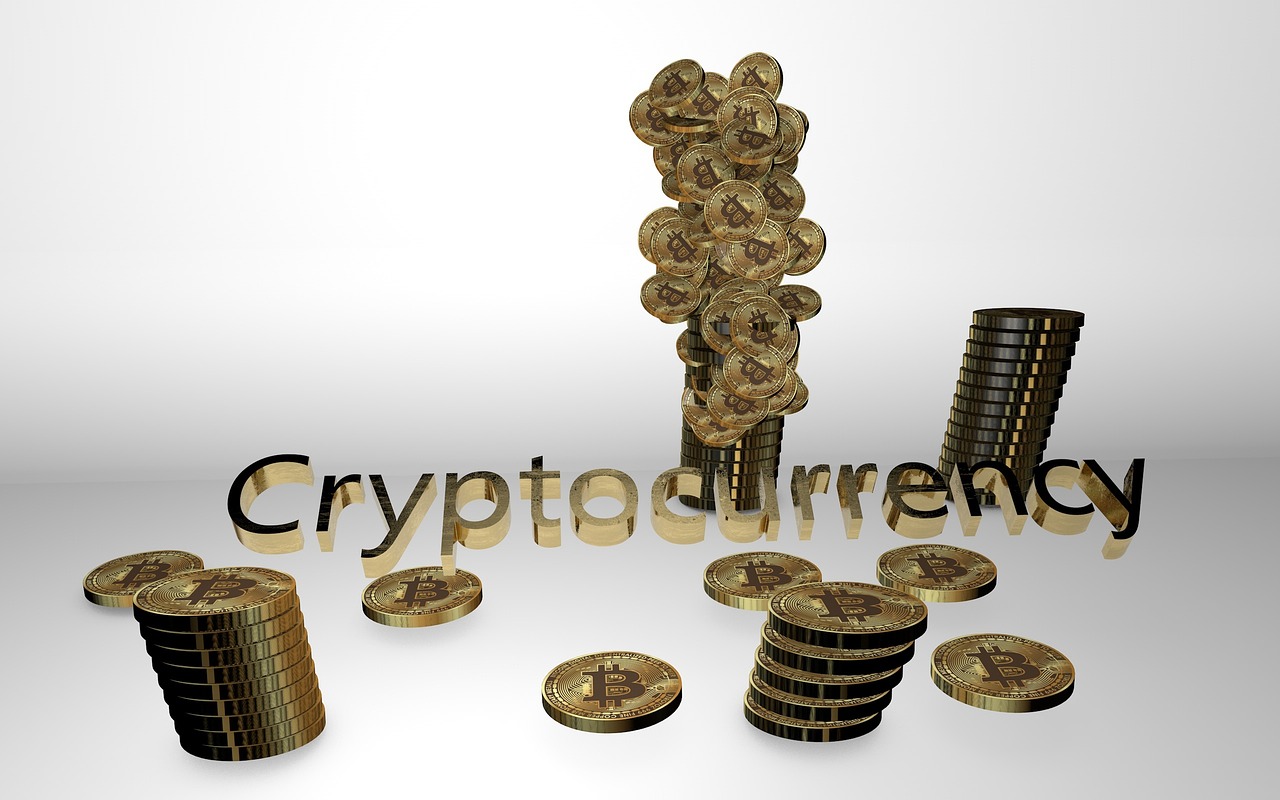
The Role of Decentralization in Geopolitical Contexts
In today's world, where geopolitical tensions can escalate at a moment's notice, the role of decentralization in the cryptocurrency landscape has become increasingly significant. Decentralization refers to the distribution of authority and control away from a central entity, and in the context of cryptocurrencies, it means that no single government or organization has the power to dictate the rules. This characteristic can serve as a double-edged sword during times of global unrest. On one hand, it provides a safe haven for investors seeking to protect their assets from traditional financial systems that may falter under pressure. On the other hand, it can lead to challenges that test the resilience of these decentralized networks.
One of the primary advantages of decentralization is that it offers a level of security and autonomy. In situations where traditional banking systems are threatened by political instability or military conflict, cryptocurrencies allow individuals to retain control over their funds. For instance, during the political unrest in Venezuela, many citizens turned to Bitcoin as a means of preserving their wealth when the local currency plummeted in value. This shift towards decentralized currencies not only provided a buffer against economic collapse but also empowered individuals to transact freely without government interference.
However, the road to decentralization is not without its hurdles. Decentralized systems can face regulatory scrutiny from governments that fear losing control over their monetary systems. For example, when countries like China impose strict regulations on cryptocurrency trading, it can create a ripple effect across the global market. Investors may panic, leading to sudden price drops and increased volatility. Furthermore, decentralized platforms can be vulnerable to security threats, such as hacking and fraud, especially when individuals are not equipped with the knowledge to safeguard their digital assets.
Despite these challenges, decentralization remains a crucial factor in the cryptocurrency ecosystem, especially in the face of geopolitical crises. The ability to transact without the need for intermediaries can be liberating, allowing people to bypass traditional financial systems that may be compromised during times of conflict. This autonomy can foster a sense of community among users, as they collectively navigate the complexities of a decentralized economy.
The interaction between decentralization and geopolitical factors is complex and multifaceted. To illustrate this, we can look at a few key points:
- Security: Decentralized networks are less susceptible to single points of failure, making them more resilient in times of crisis.
- Autonomy: Individuals can maintain control over their financial assets, reducing reliance on potentially unstable national currencies.
- Regulatory Challenges: Governments may impose restrictions that can hinder the growth and adoption of decentralized cryptocurrencies.
- Market Volatility: The sensitivity of decentralized markets to geopolitical news can lead to rapid price fluctuations.
In conclusion, while decentralization presents remarkable opportunities for individuals seeking financial freedom during geopolitical tensions, it also brings forth challenges that need to be addressed. As the world becomes more interconnected, the dynamics of decentralization in the face of global unrest will continue to evolve, shaping the future of cryptocurrency and its role in the global economy.
1. What is decentralization in cryptocurrency?
Decentralization in cryptocurrency refers to the distribution of control and authority across a network, allowing transactions to occur without a central governing body.
2. How does decentralization protect assets during geopolitical crises?
Decentralization allows individuals to maintain control over their assets, enabling them to transact freely even when traditional financial systems are under threat.
3. What are the challenges of decentralized systems?
Decentralized systems can face regulatory scrutiny, security threats, and market volatility, particularly during times of geopolitical tension.
4. Can decentralized cryptocurrencies be regulated?
Yes, while the nature of decentralization makes it difficult for any single entity to regulate, governments can impose regulations on exchanges and platforms that facilitate cryptocurrency transactions.
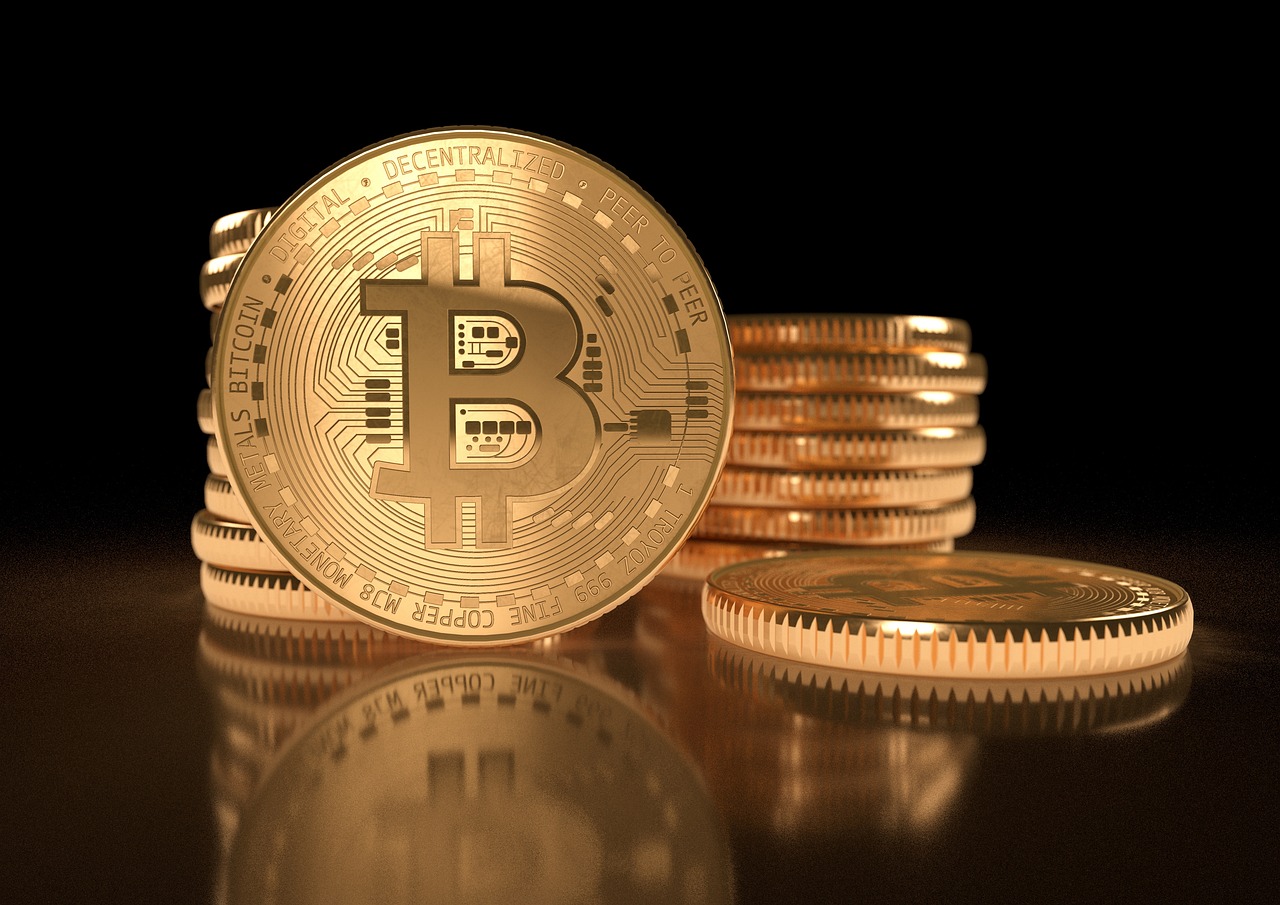
Advantages of Decentralization
Decentralization is one of the most compelling features of cryptocurrencies, offering a plethora of advantages that make them particularly resilient during geopolitical tensions. When we think about traditional financial systems, they often rely heavily on centralized institutions, which can become vulnerable during times of crisis. In contrast, decentralized cryptocurrencies operate on a network of computers, or nodes, that work together to validate transactions. This structure not only enhances security but also provides a level of autonomy that can be a game-changer for investors.
One major advantage of decentralization is its ability to provide security against government interference or financial censorship. For instance, during political upheavals, individuals in affected regions may find it increasingly difficult to access their funds through traditional banking systems. However, with cryptocurrencies, they can retain control over their assets without relying on centralized authorities. This independence can be especially crucial in countries facing economic sanctions or authoritarian regimes where financial freedom is limited.
Moreover, decentralization fosters transparency and trust. Every transaction made with cryptocurrencies is recorded on a public ledger, known as the blockchain. This transparency allows users to verify transactions independently, which is a stark contrast to opaque banking practices. In a world where trust in institutions is waning, the ability to independently verify transactions can significantly boost investor confidence.
Additionally, decentralized systems can enhance accessibility. Unlike traditional banking services that may exclude individuals based on geographic or economic barriers, cryptocurrencies can be accessed by anyone with an internet connection. This democratization of finance means that people in developing nations or those without access to banks can participate in the global economy, creating new opportunities for wealth generation and financial inclusion.
Another key advantage is the resilience of decentralized networks. Since there is no single point of failure, decentralized systems can continue to operate even when parts of the network are compromised or attacked. This resilience becomes particularly valuable in times of geopolitical strife, where infrastructure may be damaged or disrupted. The distributed nature of cryptocurrencies ensures that they can withstand various forms of external pressure, making them a reliable store of value.
In summary, the advantages of decentralization in the context of cryptocurrencies are manifold. From providing security and transparency to enhancing accessibility and resilience, these features make cryptocurrencies a compelling choice for investors, especially during turbulent geopolitical times. As we continue to navigate an increasingly complex global landscape, the role of decentralized finance will likely grow, offering new solutions to age-old problems.
- What is decentralization in cryptocurrency?
Decentralization refers to the distribution of authority and control across a network, allowing users to transact without relying on a central authority, such as a bank. - How does decentralization enhance security?
Decentralized networks are less vulnerable to attacks or failures, as there is no single point of control. This makes it harder for malicious actors to compromise the system. - Can decentralized cryptocurrencies be regulated?
While the nature of decentralization makes it challenging to regulate cryptocurrencies, governments can impose regulations on exchanges and other centralized services that interact with the crypto space. - What are the risks associated with decentralized systems?
Despite their advantages, decentralized systems can face risks such as regulatory scrutiny, market volatility, and security threats from hackers.

Challenges Faced by Decentralized Systems
While decentralized systems offer numerous advantages, they are not without their challenges, especially during geopolitical crises. One of the primary issues is regulatory scrutiny. As governments around the world grapple with how to manage cryptocurrencies, they often impose regulations that can stifle innovation and limit the operational scope of decentralized platforms. For instance, some countries may outright ban certain cryptocurrencies or impose heavy taxation on transactions, which can drive users away from these systems and into the shadows of the black market.
Another significant challenge is the security threats that decentralized systems face. During times of geopolitical unrest, hackers and malicious actors may exploit vulnerabilities in these networks. For example, decentralized exchanges could become prime targets for cyberattacks, leading to substantial losses for investors. The decentralized nature of these systems means that there is often no central authority to turn to for recourse, leaving investors feeling vulnerable and exposed.
Moreover, the lack of user education plays a critical role. Many individuals are still unfamiliar with how decentralized systems operate, which can lead to poor decision-making during times of crisis. A lack of understanding can result in panic selling or irrational investment strategies, further exacerbating market volatility. As geopolitical tensions rise, the urgency to act can lead to hasty decisions, where investors may not fully grasp the implications of their actions.
Additionally, network congestion can become a significant issue during crises. When a sudden influx of users attempts to engage with a decentralized platform, the network can become overloaded. This can lead to slow transaction times and higher fees, frustrating users who are trying to react quickly to market changes. In some cases, this congestion can even result in failed transactions, causing further panic among investors.
Lastly, the fragmentation of the ecosystem can pose challenges. With numerous decentralized platforms and protocols available, investors may find it difficult to navigate the landscape. This fragmentation can lead to confusion and inconsistency in user experience, making it harder for individuals to engage with the market effectively. The lack of standardization across platforms can also hinder the development of robust security measures, leaving users at risk.
In conclusion, while decentralized systems present a promising alternative during geopolitical tensions, they also face several challenges that can impact their effectiveness and user trust. Addressing these challenges requires a concerted effort from all stakeholders within the cryptocurrency ecosystem, including developers, regulators, and users alike.
- What are decentralized systems? Decentralized systems are networks that operate without a central authority, allowing users to interact directly with one another.
- Why do decentralized systems face regulatory scrutiny? Governments are concerned about issues such as money laundering, tax evasion, and consumer protection, leading them to impose regulations on decentralized platforms.
- How can investors protect themselves in decentralized systems? Investors can enhance their security by using reputable platforms, enabling two-factor authentication, and staying informed about potential risks.
- What should I do if I experience network congestion? If you encounter network congestion, consider waiting to execute your transactions or using alternative platforms that may be less busy.

Investor Behavior in Times of Crisis
When the world is shaken by geopolitical tensions, investors often find themselves in a whirlwind of emotions and decisions. The atmosphere becomes charged with fear, uncertainty, and doubt—a perfect storm that can significantly alter investment strategies. In these times, the behavior of investors can resemble that of a deer caught in the headlights: frozen, confused, and unsure of the best path forward. As the news breaks and markets react, many investors feel the urge to either flee or double down on their positions, creating a fascinating study of psychology in action.
During crises, the cryptocurrency market often experiences a dramatic shift in investor sentiment. For instance, when tensions escalate in a region, you might notice a spike in trading volumes as people rush to either sell off their holdings or seek refuge in perceived safe havens like Bitcoin. This volatility is not just a matter of numbers; it’s a reflection of the collective psyche of investors who are trying to navigate through chaos. Some may panic sell, fearing that their assets will lose value overnight, while others might see this as an opportunity to buy at lower prices, believing that the market will eventually rebound.
To better understand these behaviors, let’s break them down into two categories: panic selling and strategic buying. Panic selling is often driven by immediate emotional responses to news. Investors may react to headlines without fully considering the underlying fundamentals of the cryptocurrency market. This can lead to a vicious cycle where falling prices trigger even more selling, creating a downward spiral. On the other hand, strategic buying is characterized by a more calculated approach. Savvy investors may take advantage of lower prices during a crisis, believing that the long-term potential of cryptocurrencies remains intact despite short-term volatility.
Another aspect to consider is the distinction between long-term and short-term investment strategies during geopolitical crises. Long-term investors often have a different mindset compared to those looking for quick gains. They may see geopolitical tensions as temporary disruptions rather than permanent changes, allowing them to hold onto their investments through turbulent times. Conversely, short-term traders may react more swiftly to market fluctuations, adjusting their positions based on the latest news. This duality in strategies can lead to a diverse range of market behaviors, creating both opportunities and challenges.
In summary, investor behavior during geopolitical crises is a complex interplay of emotions, strategies, and market dynamics. Understanding these behaviors not only helps investors navigate through turbulent times but also sheds light on the broader implications for the cryptocurrency market as a whole. As we continue to witness global events unfold, one thing remains clear: the way investors react to these situations will continue to shape the future of digital currencies.
- How do geopolitical tensions affect cryptocurrency prices?
Geopolitical tensions can lead to increased volatility, causing prices to fluctuate as investors react to news and events. - What is panic selling in the cryptocurrency market?
Panic selling occurs when investors sell off their assets in response to fear or uncertainty, often leading to further price declines. - Can long-term investors benefit during times of crisis?
Yes, long-term investors may find opportunities to buy at lower prices during crises, as they believe in the eventual recovery of the market. - What strategies do investors typically use during crises?
Investors may engage in panic selling or strategic buying, depending on their risk tolerance and market outlook.

Panic Selling vs. Strategic Buying
In the tumultuous world of cryptocurrency, the reaction of investors to geopolitical crises can often resemble a rollercoaster ride. When tensions rise—be it through military conflicts, economic sanctions, or political instability—many investors are gripped by a sense of fear and uncertainty. This emotional turmoil can lead to what is known as panic selling, where investors hastily offload their assets in a desperate attempt to mitigate losses. The psychology behind this behavior is fascinating; it’s akin to a flock of birds scattering at the first sign of danger. In the cryptocurrency market, this can result in significant price drops, as a mass exodus of sellers floods the market with supply, driving prices down even further.
On the flip side, there are those who see these crises as opportunities rather than threats. This is where strategic buying comes into play. Savvy investors often capitalize on the market's volatility, purchasing assets at lower prices during a downturn. They understand that, just like buying stocks during a market dip, the long-term potential of cryptocurrencies can outweigh the short-term chaos. These investors tend to adopt a more analytical approach, weighing the potential for recovery against the current panic-driven market conditions.
The dichotomy between panic selling and strategic buying highlights the psychological factors that drive investor behavior during geopolitical tensions. While panic sellers react impulsively, strategic buyers remain calm and collected, focusing on the fundamentals of the cryptocurrencies they are investing in. This can create a fascinating dynamic in the market, where fear and opportunity coexist, often leading to sharp price fluctuations. For example, during the onset of a geopolitical crisis, the market may initially react negatively, but as strategic buyers step in, they can help stabilize prices and even push them back up.
To illustrate this further, let’s consider a hypothetical scenario:
| Event | Market Reaction | Panic Selling | Strategic Buying |
|---|---|---|---|
| Military Conflict Erupts | Initial Price Drop | Investors sell off assets in fear | Investors buy in at lower prices |
| Economic Sanctions Imposed | Increased Volatility | Mass sell-off leads to further drops | Long-term investors see value |
| Resolution of Conflict | Market Recovery | Investors regret selling | Strategic buyers profit from recovery |
This table serves to highlight how the actions of panic sellers and strategic buyers can shape the market landscape during times of geopolitical tension. While panic sellers may experience immediate relief, they often miss out on the potential gains that come with recovery. In contrast, strategic buyers who remain level-headed can reap the rewards of their foresight and patience.
In conclusion, understanding the dynamics of panic selling versus strategic buying is crucial for anyone involved in cryptocurrency trading. The emotional responses to geopolitical events can lead to drastic market movements, but those who can navigate these waters with a clear strategy are often the ones who come out ahead. As the world becomes increasingly interconnected and geopolitical tensions persist, the ability to discern between fear and opportunity will remain a vital skill for investors in the digital currency space.
- What is panic selling in cryptocurrency?
Panic selling occurs when investors sell their assets hastily due to fear or uncertainty, often leading to significant price drops. - How can strategic buying benefit investors?
Strategic buying allows investors to purchase assets at lower prices during market downturns, potentially leading to profits when the market recovers. - What factors influence investor behavior during geopolitical crises?
Fear, uncertainty, and the potential for loss can drive panic selling, while the potential for future gains can encourage strategic buying. - Can market sentiment shift quickly during geopolitical events?
Yes, market sentiment can change rapidly in response to news, leading to quick price fluctuations in cryptocurrencies.

Long-term vs. Short-term Investment Strategies
When it comes to navigating the turbulent waters of cryptocurrency during geopolitical crises, investors often find themselves at a crossroads: should they adopt a long-term investment strategy or lean towards short-term trading? Each approach has its own set of advantages and challenges, and understanding these can significantly impact your investment outcomes. Let's dive deeper into what each strategy entails and how they respond to the unpredictable nature of geopolitical events.
Long-term investors typically adopt a "buy and hold" strategy, believing in the fundamental value of cryptocurrencies despite short-term fluctuations. They view geopolitical tensions as temporary hurdles rather than insurmountable barriers. For instance, during the height of the COVID-19 pandemic, many long-term investors remained committed to their holdings, convinced that the market would eventually recover. This unwavering belief can often lead to higher returns, especially when markets stabilize after a crisis.
On the other hand, short-term traders thrive on volatility. They capitalize on the rapid price swings that often accompany geopolitical events, aiming to buy low and sell high within a short timeframe. This strategy requires a keen eye on market trends and news cycles, as even minor geopolitical developments can lead to significant price movements. For example, when tensions escalated between two nations, traders might have noticed a spike in trading volume for cryptocurrencies, prompting them to make quick decisions to profit from the chaos.
However, it's crucial to recognize that both strategies come with their own risks. Long-term investors may experience anxiety during prolonged periods of instability, questioning their investment choices as prices fluctuate wildly. Conversely, short-term traders can fall victim to emotional decision-making; the fear of missing out (FOMO) or panic selling can lead to poor choices. It's essential to have a well-defined plan and stick to it, regardless of the market's emotional temperature.
Investors might also consider a hybrid approach, blending both long-term and short-term strategies. This method allows for flexibility, where a portion of the portfolio is dedicated to long-term holdings while another is allocated for short-term trading. This can help mitigate risks and take advantage of market opportunities as they arise. For example, during a geopolitical crisis, an investor could hold onto a core position in Bitcoin while actively trading altcoins that are more reactive to market sentiment.
Ultimately, the choice between long-term and short-term investment strategies during geopolitical tensions should align with your risk tolerance, investment goals, and market outlook. Understanding your own financial landscape and the broader economic environment is key to making informed decisions. As the world continues to grapple with various geopolitical challenges, staying informed and adaptable will be your greatest asset in the ever-evolving cryptocurrency market.
- What is the best strategy for investing in cryptocurrency during geopolitical tensions?
There is no one-size-fits-all answer. It depends on your risk tolerance and investment goals. Long-term strategies may offer stability, while short-term strategies can capitalize on volatility.
- How can I mitigate risks when investing in cryptocurrencies?
Diversification is key. Consider spreading your investments across different cryptocurrencies and asset classes to reduce exposure to any single asset.
- Should I sell my cryptocurrencies during a crisis?
It depends on your strategy. Long-term investors may choose to hold, while short-term traders might look to capitalize on price movements. Always assess your financial situation before making decisions.
Frequently Asked Questions
- How do geopolitical tensions affect cryptocurrency prices?
Geopolitical tensions often lead to increased uncertainty in financial markets, prompting investors to seek alternative assets like cryptocurrencies. This shift can cause significant price volatility as traders react to news and events, often leading to rapid price fluctuations.
- What role do regulations play during geopolitical crises?
Regulations can change dramatically during geopolitical tensions, as governments may implement new laws or adjust existing ones to respond to market behaviors. These regulatory changes can impact trading volumes and investor confidence, ultimately shaping the cryptocurrency landscape.
- Can you provide examples of regulatory changes due to geopolitical events?
Yes! For instance, when tensions rise in a specific region, countries may impose stricter regulations on cryptocurrency exchanges or transactions. This can lead to a decrease in trading activity or even cause exchanges to shut down temporarily, as seen in past conflicts.
- How does decentralization help during global unrest?
Decentralization provides a level of security and autonomy that can protect assets during geopolitical turmoil. Since cryptocurrencies operate on a decentralized network, they are less susceptible to government intervention or control, allowing users to maintain access to their funds.
- What are the challenges faced by decentralized systems in crises?
Despite their advantages, decentralized systems can face significant challenges during geopolitical crises, including increased regulatory scrutiny and potential security threats. These factors can create a complex environment for users and investors, impacting overall market stability.
- How do investors typically behave during geopolitical crises?
Investor behavior can vary widely during geopolitical tensions. Some may engage in panic selling due to fear and uncertainty, while others might adopt a strategic buying approach, viewing the situation as an opportunity to acquire assets at lower prices.
- What investment strategies are common during geopolitical tensions?
Investors often weigh the risks and rewards of long-term versus short-term strategies during geopolitical crises. While some may opt for quick trades to capitalize on volatility, others might hold their investments longer, betting on eventual recovery and stability.


